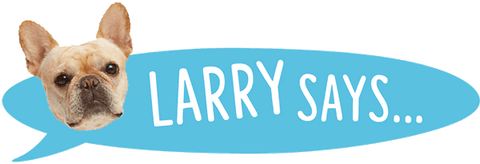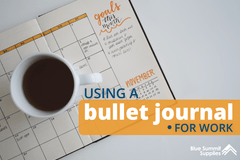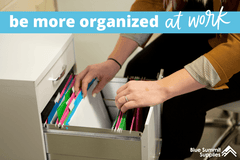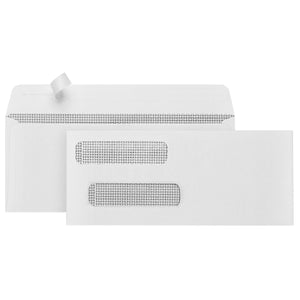Employee turnover is a sad reality of running a business. No matter how well you pay, how great your company culture is, or how much trust you build across your team, there will always be reasons that people come and go. And even though seeing a team member leave may be difficult or even stressful depending on the circumstances, you must make the most of this critical time. Employee offboarding should be a key process of your business whenever an employee leaves.
Do you currently have an offboarding process? This post will cover the importance of employee offboarding and how to offboard effectively, including a checklist to get you started. We’ll also cover common exit interview questions and how to make the most of exit interviews.
Why is Offboarding Important?

Maintaining Positive Relationships
The benefits of offboarding are far-reaching. A big piece of offboarding is ensuring you end with a positive lasting relationship. Just because an employee is going their separate way doesn't mean the relationship is over.
There are so many ways you may cross paths in the future as a community member, vendor, business recommendation, etc. Even if they are no longer working with you, they are still part of your community; they may be able to recommend your business to other people or recommend your business as a great place to work for future hires.
Word gets around between employees, inside and outside of your workplace. Do all that you can to be thought of as a workplace that’s amazing to work at—not one that’s gossiped about for being terrible. If your company’s employee experience is regularly trash talked in industry circles, it’s a sure-fire way to hinder your brand and limit your talent pool.

Ensure a Smooth Transition
When an employee leaves, so does all of the information they have inside their heads, whether that’s important contacts, how to complete tasks, or critical login information. The employee onboarding process is a chance to get on the same page about ongoing projects, outstanding tasks, and other valuable information that will make the transition smoother for managers and the rest of the team.
What information does a person taking on that same role need to know? What challenges might they face, and what work will be left in progress? What business contacts should be notified about the transition, and what relationships need to be maintained by someone else?
The more you utilize the employee’s knowledge and prepare for their exit in advance, the smoother the transition will be.

Gather Invaluable Information
The insights you gain during employee offboarding are invaluable. During the offboarding process, you can gather key information that will help transition a new individual into the role and gain a deeper look into that employee's experience with the company. What might they improve, or what do they wish was different now that they are free to give unencumbered feedback?
When offboarding employees, capture both information that will help new hires as well as specific feedback that can help you improve the way your business operates. If done effectively, offboarding will help ensure the team can continue their work with as few hiccups or interruptions as possible when a teammate leaves.
Employee Offboarding Checklist
If you don’t currently have an offboarding or exit interview plan, utilize our checklist to get started. Make sure you customize it to the needs of your industry, business, and team. Continually adjust your processes as you gather feedback from your team and determine what information capture you need.
 |
Click here to download our free employee off boarding checklist! |
- Begin the offboarding process as soon as you learn about an employee's departure.
- Tactfully inform the entire team that an employee is leaving to prevent inter-office gossip.
- Schedule an exit interview date.
- Prepare important paperwork and legal documents (Ex. tax documents, 401K information, etc.)
- Ask for a list of important business contacts that may be needed after they leave.
- Request a status report for ongoing projects and outstanding tasks.
- Complete the employee exit interview to retrieve insight and feedback.
- Arrange for the return of all company assets, including technology, keys, and passes.
- Create redirects for emails and calls.
- Update the company website and social media accounts as necessary.
- Ensure all account passwords are reset upon the employee's departure.
- Clearly define your offboarding and exit interview policy, so it can be replicated by all business teams.
- Continue to evolve your onboarding process as you gather additional feedback and learn what information is most important to gather.

We have guides that cover the onboarding process too. Check out our New Employee Orientation Ideas (Including Employee First Day Checklist) and How to Ensure Your New Hires Are Properly Integrated.
The Importance of Exit Interviews
Exit interviews are a critical component of the offboarding process. The purpose of exit interviews is to gather insights directly from an existing employee. They provide an opportunity to dig deeper into an employee’s experiences with their team and the company as a whole. It’s a chance to gather direct and honest feedback from someone who is able to speak openly.
The act of running an exit interview also shows respect to the leaving employee. It illustrates that you value all team members, even the ones who are on their way out.
Because of the importance of this meeting, care must be given to planning the meeting agenda in advance. Ensure a clear time and time limit is set and that an agenda is prepared in advance to keep the meeting on track.
Preparing a set of good exit interview questions will help you gather richer insights. A generic set of questions used for all exit interviews is an okay place to start, but for the best experience, tailor your questions to the employee before the meeting. Are there any questions you usually ask that don’t apply in this circumstance? Are there new questions you can ask based on your relationship with the employee, their role within the company, or the circumstances surrounding their exit?
For example, if you know an employee is retiring, many of the normal exit interview questions won’t apply. If an employee is being laid off due to no wrongdoing of their own, you might still be able to conduct an exit interview to sort through final preparations and to gather feedback, but you’ll need to carefully adjust your questions. Make sure all exit interview questions suit the needs and potential sensitivity of the situation.
Before the interview, ensure the employee knows what to expect from the meeting. Reassure them that it is for the purposes of gathering honest feedback and tying up loose ends for both parties. Encourage them to prepare any questions they might have for you or the company.

Best Exit Interview Questions
The best exit interview questions maintain a level of professionalism while allowing the employee to speak comfortably about their experiences, impressions, and final thoughts. Remember to tailor the questions to each specific employee so that you don’t waste time on irrelevant questions and so the employee doesn't feel caught up in a generic, repetitive business process.
The following questions are examples, but they must be tailored to the circumstances of your meeting. This is also an extensive list, so be sure to choose only the most appropriate questions.
Exit interview questions for employees:
- Do you mind sharing why you are leaving?
- Is there anything this company could have done to make you stay?
- Is there something specific we were unable to offer you?
- What could we have done better?
- Did you previously share your concerns with a manager or HR department before deciding to leave?
- Are there any changes that could make you consider returning?
- What did you like most about your job/role?
- What did you like least about your job/role?
- How did you feel about our company culture? Did you feel like you were a good fit?
- Did you feel like you had a path forward within our company?
- What does someone taking on your role need to know about the position?
- Are there any skills or traits you believe would be valuable in the next person we hire to take on your role?
- How has your job description changed since you were hired?
- Would you recommend this company's products/services to your friends and family?
- Would you recommend this company to people you know as a place to work?
- How did you feel about the employee onboarding process? Were you given the information and tools you needed?
- How do you feel about the employee offboarding process?
- Do you have any questions about what happens next?
- Are there any important unfinished tasks you will be leaving behind that we should know about?
- Do you have any remaining concerns?
- Do you have any questions for me?
Exit interview questions for retiring employees:
- If you were in charge of the company, what would you do differently?
- Are there any opportunities we are missing across any business area, including sales, marketing, training, team building, professional development, etc.?
- Is there anything we could offer you that could make you consider returning?
- Would you consider working on a part-time basis if an opportunity came up?
- Are you interested in helping train new hires part-time should the opportunity arise?
- How has the company changed between now and when you were first hired?
- What accomplishments are you most proud of?
- What aspects of your job did you enjoy the most?
- Did the company help you achieve your goals? What else could we have done to help you with your personal and professional development?
- Do you have any issues or complaints that were not resolved while you were working with us?
- How has your role changed since you were hired?
- What does someone taking on your role need to know about the position?
- What skills or traits should we look for in the next person we hire?
- Are there any important unfinished tasks you will be leaving behind that we should know about?
- Do you have any exciting plans for your retirement?
Exit interview questions for interns:
- If you were in charge of this company, what would you do differently?
- What did you enjoy most about your time with us?
- What did you enjoy least about your time with us?
- How could we improve our intern program?
- Did you receive the support you needed while you were working here?
- Did you receive adequate training to perform your duties?
- Would you consider returning in the same capacity should the opportunity arise?
- Would you consider applying for a full-time position if an appropriate one became available?
- Are you interested in continuing on in a part-time capacity?
- How did you feel about the employee onboarding process? Were you given the information and tools you needed?
- How do you feel about the employee offboarding process?
- Would you recommend this company's products/services to your friends and family?
- Would you recommend this company to people you know as a place to work?
- Do you have any concerns or questions for me?
Career and Culture From Blue Summit Supplies
💡 Organizational Fit: The Importance of Culture Hiring
💡 How to Ensure Your New Hires Are Properly Integrated
Do you love office talk as much as we do? Follow our office blog for the latest advice, trends, office strategies, and more.
If you have any questions or want to talk to someone at Blue Summit, send us an email or connect with us on Twitter, Facebook, or Instagram.
 For more informative articles about office supplies, subscribe to our email newsletter!
For more informative articles about office supplies, subscribe to our email newsletter!
Never fear, you won't begin receiving daily sales emails that belong in a spam folder. Instead, we promise a fun weekly roundup of our latest blog posts and great finds from across the web. And if you lose interest, it's always easy to unsubscribe with a single click.










